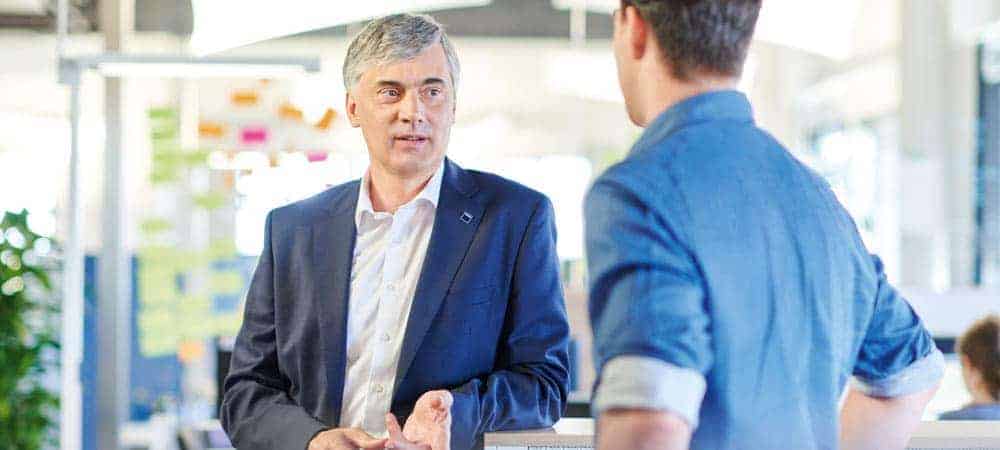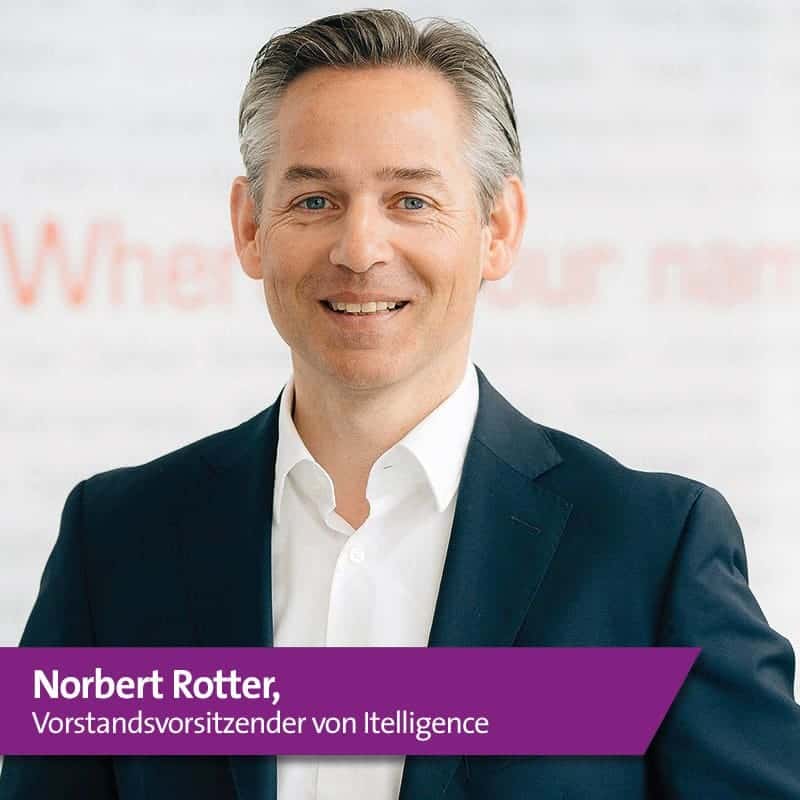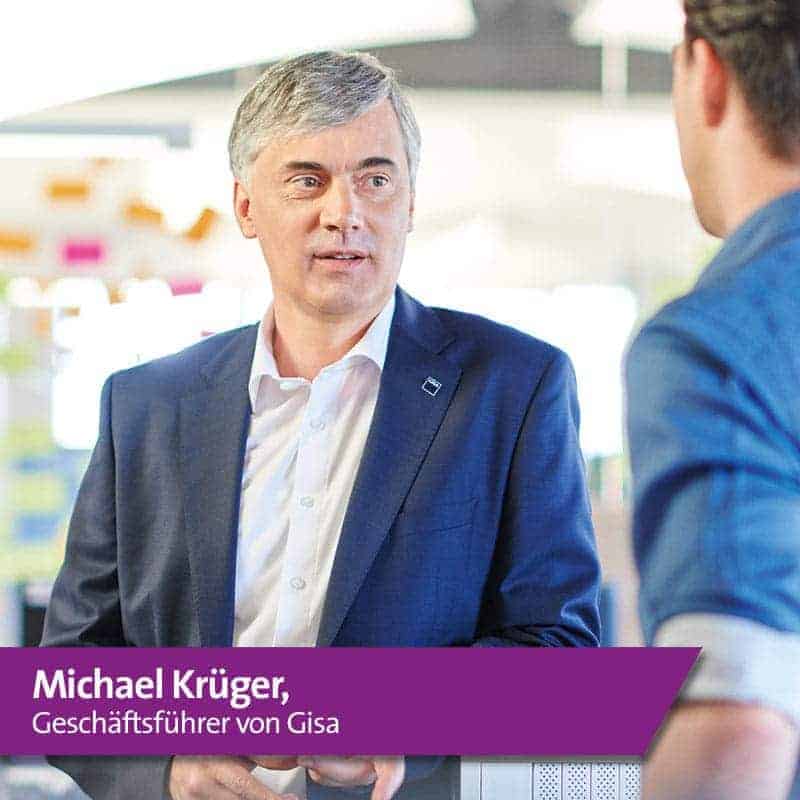New thinking in the utility industry


Digital transformation is a business, organizational and technical path that industry and commerce will take. The emphasis is on "transformation," because at the end of the road, most organizational structures and processes will be structured differently. Each transformation will have its own character, but each existing SAP customer can learn from the transformation of the other.
Over the past 40 years, the SAP community has produced a great deal of business knowledge and superior industry solutions. Now, these insights and solutions must be given a path to digitalization.
The transformation process of an SAP's industry solution may have many specifics, but certainly also a very large share of generic insights, tips and tricks. One of the more complex industry solutions from the SAP offering is "Utilities" and one of the leading SAP partners is Gisa. So it was a logical step to work with Gisa on a report on the topic of "Digital Supply and Transformation".
In a study last November by Futurum Research, analysts Daniel Newman and Fred McClimans wrote that the umbrella term "utilities" refers to those companies that provide drinking water, natural gas, electricity from any source, wastewater and solid waste collection and treatment, and recycling.
Without the utility industry, civilized life would not be possible at all, says the Futurum Research study, which was prepared in cooperation with SAP. The broad offering of the utility industry includes both regional and international companies specializing in services for generation, transmission and distribution, and consumption metering.
It is therefore not surprising that there are numerous points of intersection with other sectors: for example, with the chemical, consumer goods, oil, gas and automotive industries, as well as with industrial manufacturing. The utility industry is evolving rapidly.
From Utilities to S/4
"The transformation towards S/4 Hana has arrived in all industries. At Gisa, we have been noticing this very strongly in demand for more than a year now."
is how Michael Krüger describes the initial situation at the beginning of the interview.
"Many companies are currently forming a picture of the upcoming changes and requirements in strategic preliminary projects. This includes utilities. The SAP roadmap provides a guide for the upcoming change to S/4."
SAP has announced that it will deliver the first utilities-specific S/4 content in the new S/4 release (Ver. 1809).
"So testing we will do, not the environment. The environment is up and running and the new content will be put in there."
said Managing Director Krüger. It remains exciting to see what the SAP cloud solution for mapping regulated market communication will look like and, accordingly, how the transfer of the previous market communication processes of energy suppliers in SAP and non-SAP to the new SAP product portfolio may look.
"It also helps that we are currently implementing an S/4 Hana system with Stadtwerke Pforzheim, where we can also score points with our industry knowledge. In short: Gisa is very well positioned for consulting utilities in the direction of S/4".
Michael Krüger is pleased.
 Paradigm shift
Paradigm shift
Analysts Daniel Newman and Fred McClimans also conclude that a real paradigm shift is at hand, and it will redefine what a utility is, how it is acquired, and what it should look like in ten years.
At the same time, consumers are looking for more sustainable, innovative and cost-effective options for their consumption. Many utilities are intensively searching for a viable path for them in this period of upheaval.
Utilities will rely on competitive collaboration to provide customers with optimized, attractive interaction opportunities. Companies that fail to adapt to customers and focus on their needs run the risk of failure.
The focus of SAP's work is currently on the SAP Cloud Platform, C/4 Hana and SAP's numerous cloud subsidiaries: Do SAP's existing utility customers still feel perceived with their ERP/ECC 6.0-based systems?
"As Itelligence, we are of course at the forefront of this development and can share our expertise first-hand within our company and with our subsidiaries such as Gisa"
explains Norbert Rotter, CEO of Itelligence AG.
And Rotter is convinced that cloud solutions will increasingly establish themselves in the product business. Hybrid architecture will also continue to exist, and both offer strong potential.
"There are numerous cloud approaches that Itelligence already offers and implements as so-called global managed services, in its own data centers or also in our partnership with Amazon AWS"
Norbert Rotter describes the current situation.
"The question is not cloud or non-cloud, but how the pieces connect in a hybrid landscape. We evaluate these connections together with our customers in advance in workshops, and they decide which S/4 strategy and roadmap considerations should be taken into account. This is how we create the necessary transparency."
When people talk about digital transformation and paradigm shifts, they also have to ask: What are the benefits of switching to SAP S/4 Utilities?
What does S/4 bring?
"The main advantage of switching to the S/4 world is that it equips companies for the age of digitalization"
explains Michael Krüger.
"If you want to use big data, analytics, IoT, AI or augmented reality and also network them, you first and foremost need powerful IT and the right processes.
In the future, utilities will be called upon even more strongly than before to offer new, innovative business models. At the same time, a large amount of data will be generated as a result of the smart meter rollout. It is obvious that IT is an essential strategy component here."
But Gisa Managing Director Krüger also has justified wishes and demands: "Nevertheless, we would like SAP to make its strategy for utilities more transparent - especially in its benefits. Then municipal utilities and energy service providers can continue to plan with SAP software for their IT strategy."
The Futurum Research study authors also come to similar conclusions: "However, innovation per se is not the decisive challenge, because innovative areas exist in almost all companies - extremely successful ones and great failures.
The real challenge is to implement innovations throughout the company. To do that, you need mechanisms to ensure that these innovations can be shared with others, are sustainable, and create value all the way down to the core of the company."
The digitization of business processes is an important topic for the utility industry. SAP is ready with the digital toolbox "Leonardo". Norbert Rotter on the question of who utilities should cooperate with in this transformation process:
"Ideally with a consulting firm that is both capable of implementing the technological requirements from the security, IoT, smart meter scenarios and has the relevant industry expertise.
Gisa together with Itelligence and together with the sister companies of the NTT Data Group are optimally positioned and coordinated to advise our customers holistically and on an international level.
This also includes the fact that we have already established cross-company teams for the various innovation topics and share our knowledge across countries and industries. This is a real advantage for our customers."
There is a milestone for the SAP community: 2025. Whether a comprehensive S/4 utility solution will be in place by then is hard to answer.
"We can only orient ourselves here to the specifications on the part of SAP"
says Michael Krüger.
"I also don't think it's happy to speculate on whether there will be delays. The move to S/4 and Hana brings many advantages. And even with the current time horizon, an orderly transition is quite doable. I had already said that we would like to see more communication from SAP for the Utilities industry. Perhaps we will learn more at the DSAG Days this year in Leipzig."
Immature Leonardo
An analyst statement published by DSAG admits that Leonardo is not mature enough. How does Itelligence view the situation?
"Leonardo is not a ready-made 'set' of standard software, but a flexible environment that provides appropriate services for activation"
Norbert Rotter explains and adds:
"In contrast to the previous possibilities of customizing without coding, Leonardo specifically focuses on the use of services and building blocks that can also be combined across providers.
So it's an open environment with flexible deployment options that also takes the approach of optimizing employee training efforts."
From a holistic SAP existing customer perspective: What are the requirements for an S/4 transformation partner like Gisa and Itelligence: technical Hana and S/4 expertise, industry know-how, independence and number of consultants, business knowledge, Abap know-how?
"First and foremost, customers expect neutral and competent advice for the transition scenarios to be selected"
Rotter describes the current state of the SAP community.
"Many turn to us with the question of the ideal time and the 'right' changeover method. That is why Itelligence offers customers strategy workshops with different approaches.
Here we work out the requirements for a transition together and very individually in a roadmap. The most suitable scenario can be developed on the basis of these verified facts."
Avoid double expenditures
"According to the results of the preliminary investigation or readiness checks, it is essential as a customer to put the dimensioning of the project on a roadmap, especially also in the context of other already planned project projects"
Michael Krüger explains the prerequisites for successful S/4 digitization. He emphasizes that strategy workshops can often identify potential bottlenecks and, if necessary, even avoid duplicate expenditures.
"Utilities that are new to the SAP world will certainly take the greenfield approach"
defines the Gisa managing director. Gisa is currently supporting Stadtwerke Pforzheim on this path.
"Based on many individually distinctive IS-U systems, one might think that utilities might be leaning more toward brownfield. However, such assessments are currently still entirely premature."
says Krüger. Every S/4 project is preceded by extensive preparatory work, especially on the process side. In fact, it is not so much technical as organizational and process-related questions that need to be answered before a transformation.
"And so each strategy is also chosen individually"
says Michael Krüger. According to his findings, how much confidence do utilities have in the Hana database?
"We were a development partner at Gisa for Hana, so we were able to gain very early experience first with the new type of database, then with the platform, and now with S/4.
We have advised utilities from the very beginning and also jointly developed Hana strategies. For example, enviaM transformed its BW system on Hana at a very early stage. The experience was positive"
says Krüger.
"We are currently developing Hana strategies with several utilities to make their IT fit for the requirements of the future. The Hana DB is now established on the market with a high level of technical maturity and acceptance.
SAP has provided Hana with appropriate strategic incentives, leading some IT departments to consider replacing their legacy non-SAP databases"
reports Michael Krüger on the basis of many customer discussions.
Way out of the ERP dilemma
At the end of the conversation, the almost obligatory question about cloud computing: One way out of the "ERP dilemma" - as the DSAG currently describes the state of the SAP community in a survey - can be cloud computing.
How high is the acceptance in the utility market for on-demand solutions? For Hana, S/4 and Analytics?
"The utilities industry is traditional in nature, plus there are very high safety requirements."
explains Michael Krüger in advance.
"So the adoption of on-premise solutions is understandably high. For analytics solutions such as Gisa's own predictive analytics solution for determining customer value and likelihood of cancellation, which is based on Hana, we use our systems for testing and customers can also access our systems later - so it's a 'private cloud' solution. For S/4 Utilities, a number of cloud functionalities are under discussion. If these make sense, there will be adoption."
But there are other parameters, as Krüger describes:
"In principle, what we are seeing from customers is that as the skills shortage increases, technology changes rapidly and scaling effects, they are also looking at SAP from the cloud.
Gisa can position itself well in many cases as an SAP-certified cloud provider. It will also be exciting to see how the cloud offering from SAP partners or SAP's own operation at individual customers in hybrid operation is integrated with the SAP public cloud elements and remains operable.
Gisa has been investing in the further development of the corresponding components and services for such hybrid SAP cloud landscapes for quite some time."
SAP is trying to revitalize the digital transformation of ERP with innovative ideas that are summarized in the "Leonardo" toolbox. How relevant are the following topics for the utility industry from Gisa's and Itelligence's point of view?
Michael Krüger on blockchain and other Leonardo components:
"The possibilities of blockchain are currently being evaluated at Gisa. With a strategy partner, we are currently looking at which ideas and business models the energy industry would like to realize with blockchain in a cooperation project.
Gisa is currently developing its first applications. IoT is also being evaluated and implemented in initial developments. We are also devoting ourselves to the possibilities of AI in a variety of ways and are already developing the first applications here, including for the energy sector.
Design thinking has been used as a methodology at Gisa for years. In the field of analytics and big data, we are successful with customers in various fields. One of these is the predictive analytics solution for customer retention described above.
Viewed in the light of day, Leonardo has yet to present itself in a way that is tangible or usable in terms of content and technology. It feels like the presentation is still predominantly very theoretical and less benefit and application-oriented."
Norbert Rotter on IoT:
"Smart meters are not really established. There is still no certified device. But the idea of smart meters and the technical requirements that utilities have already created are certainly established.
The exciting combination for the future lies in linking the technology on the user and producer side. The combination of IoT with blockchain and security now makes it possible to develop interesting business models for this.
For example, if the topic of 'control' of end devices and the use of batteries is transformed from a passive role to an active role, we will have completely new possibilities for network monitoring and control, without any negative impact for users. Itelligence is already active here in research projects from the e-mobility sector."
Michael Krüger on AI with Machine/Deep Learning and RPA:
"Before the topics of Deep Learning and AI are used extensively, we currently see the intermediate step from the field of RPA, Robotic Process Automation, in which recurring workflows are recognized in a simple way and integrated into automatic processing, with the consequence of automating and streamlining existing processes.
The challenge in the field of deep learning and AI lies in identifying the necessary algorithms and the corresponding parameters in advance - before the use case. This is where the strength of 'Analytics & Big Data' becomes clear.
The basis of all these approaches is sufficient data, on the basis of which data scientists can then derive initial models. Fraud detection is also a topic here, whereby manipulation or errors in the network can be detected."
Michael Krüger on Design Thinking:
"We use the design thinking method across all topics and roles to identify innovation ideas - and it has proven successful. Design thinking and the approach via rapid prototypes and accelerators form the basis for generating, trying out, pursuing or discarding ideas; they are already an integral part of our innovation management.
To create practical relevance for our customers as quickly as possible, prototypes and accelerators support us here. This allows us to derive initial insights for our customers at an early stage and make better decisions."
Michael Krüger on Analytics and Big Data:
"From my point of view, the meaning of the phrase 'data is the oil, the fuel of the future' is not yet fully understood today. We are at the beginning of a data society. A corresponding database is absolutely essential, especially for the identification and simulation of new business models.
Likewise, data forms the basis for future approaches in the field of AI/ML and deep learning. It is important that data is collected and maintained in such a way that it can also be evaluated in an uncomplicated manner - both in terms of data quality and compliance with data protection.








